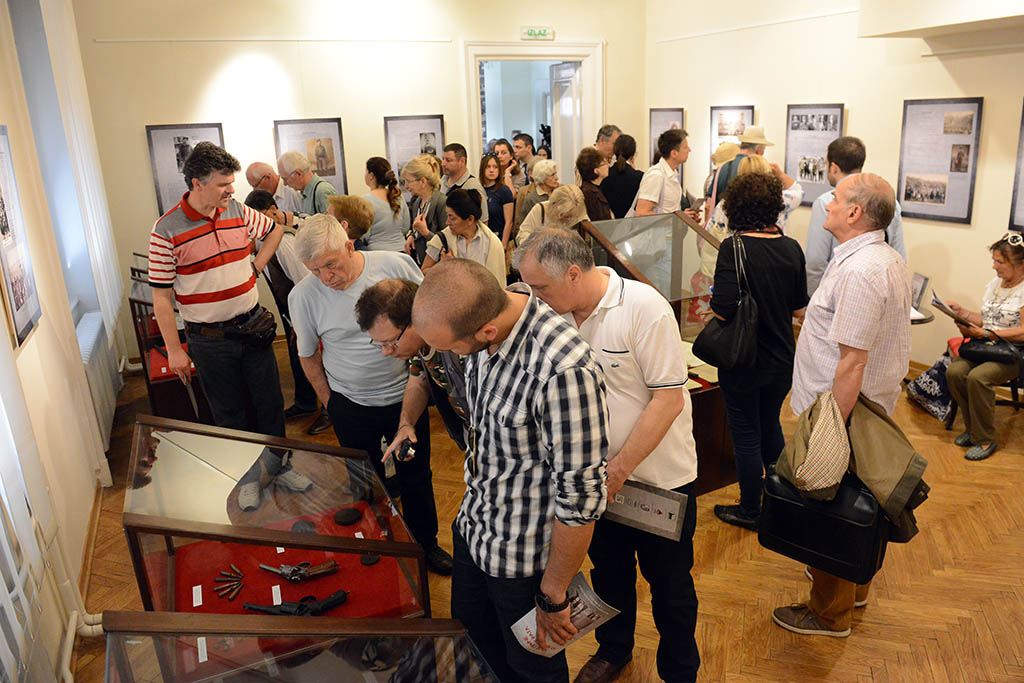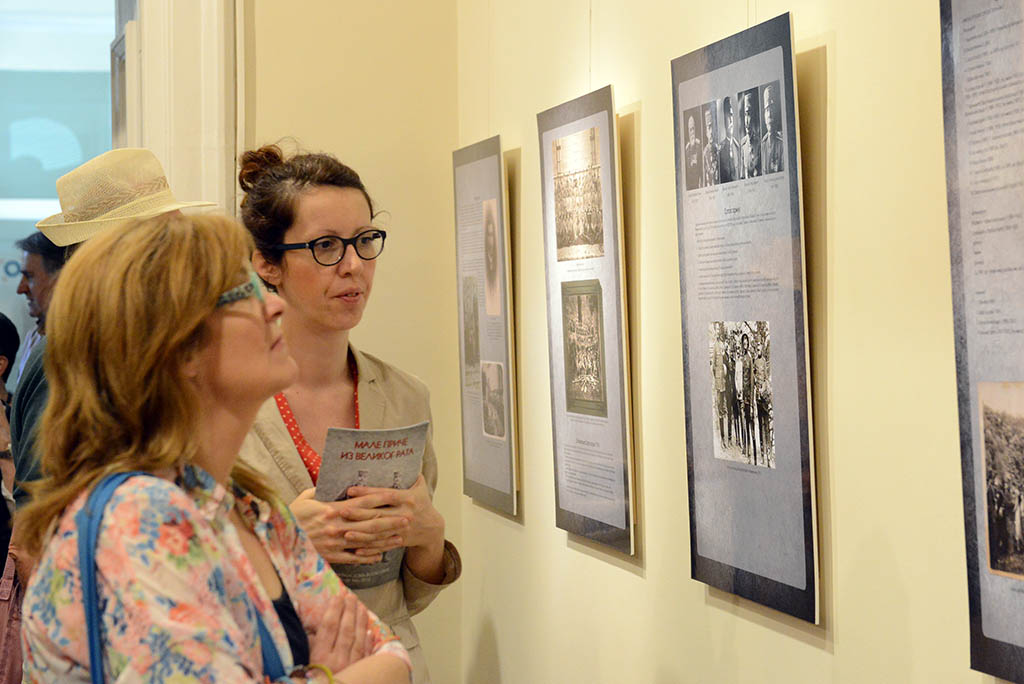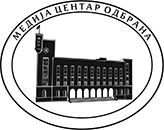05.05.2015
The exhibition "Little stories from the Great War" opened
 In the course of marking the centenary of the Great War, at the Small Gallery of the Central Military Club, an exhibition was opened today, titled “Little stories from the Great War”, in organization of Odbrana Media Center, Sector of the Valjevo National Museum from Osecina, Association of war descendants of Serbia 1912-1920 and the Military Museum in Belgrade.
In the course of marking the centenary of the Great War, at the Small Gallery of the Central Military Club, an exhibition was opened today, titled “Little stories from the Great War”, in organization of Odbrana Media Center, Sector of the Valjevo National Museum from Osecina, Association of war descendants of Serbia 1912-1920 and the Military Museum in Belgrade.An inseparable part of the exhibition that displays items from the Great War, arms and war equipment owned by the Museum and the Church of the Resurrection of the Lord in Osecina and from private collections of Dr. Svetislav Stanojevic Sole, Milos Vukovic and Miodrag Nenadovic was a number of photographs, documents, diaries and soldiers’ letters, collected in the course of the project “Album of memory of our ancestors from the Great War”, started last year upon the initiative of the Association of war descendants of Serbia 1912-1920, which were shown in a video.
Numerous history enthusiasts who attended the ceremonial opening of the exhibition were greeted by Director of Odbrana Media Center Colonel Stevica Karapandzin, who spoke about the publishing plans of the house and the previous steps in marking the centenary, while the exhibition and the Album of memory were presented by Svetozar Gacic, Head of the Museum in Osecina, Milan Petrovic, associate of the Osecina Museum, Ljubomir Markovic, President of Association 1912-1920 and Aleksandar Vasilic, head of the project “Album of memory of our ancestors from the Great War”.

Stressing that the exhibition was, in fact, homage to the Serbian soldier who defeated three great forces with his selfless dedication and superhuman efforts and victoriously returned to his country, Svetozar Gacic said that the little man, the warrior, was never really little.
- Without the regular man, the soldier, Serbia would never have won, even with all the genius of its dukes and military leaders. The warrior, the countryman, has remained the guarantor of freedom in this territory, on the Balkan gunpowder barrel, where it has always been necessary to prove the right to a dignified and free life – Head of the Sector of the Valjevo National Museum in Osecina said.
Milan Petrovic, associate of the Osecina Museum also addressed the guests, stressing the organizers’ and editors’ efforts in the acquiring of the items, and the desire of the warrior descendants and owners of valuable documents and arms from the Great War to make them available to the public and thus tell the tale of the heroic deeds of our ancestors.
Ljubomir Markovic, long-term president of the organization that includes 30 associations of warrior descendants from the period between 1912 and 1920, spoke about the eternal source of liberation aspirations and courage of Serbian warriors between 1912 and 1920. He stressed that freedom has no price for the Serbian people, and that the descendants’ gratitude for everything their ancestors had done in battle for freedom is limitless.
 - We can promise that we will continue the tradition of fighting for freedom and that we will not disgrace our ancestors who gave their lives to preserve our freedom and our fatherland. The project “Album of memory of our ancestors from the Great War” initiated in 2014 continues. Entire Serbia will worthily mark all events that occurred in war-ridden 1915, and the following years; entire Serbia will be in Corfu in 1916, and will once again cross the paths of the heroes of the Albanian Golgotha, it will be in Thessalonica... We will mark all important dates that made 1915 one of the most horrific years in Serbian history, when Serbia was attacked by Germans, Bulgarians, Austro-Hungarians and typhus.
- We can promise that we will continue the tradition of fighting for freedom and that we will not disgrace our ancestors who gave their lives to preserve our freedom and our fatherland. The project “Album of memory of our ancestors from the Great War” initiated in 2014 continues. Entire Serbia will worthily mark all events that occurred in war-ridden 1915, and the following years; entire Serbia will be in Corfu in 1916, and will once again cross the paths of the heroes of the Albanian Golgotha, it will be in Thessalonica... We will mark all important dates that made 1915 one of the most horrific years in Serbian history, when Serbia was attacked by Germans, Bulgarians, Austro-Hungarians and typhus. Head of the project “Album of memory of our ancestors from the Great War” Aleksandar Vasilic thank everyone who gave their contributions, photographs, letters, postcards and other documents collected in the past period and thus made possible the success of the initiative which was also supported by the Serbian and Russian Orthodox Church, Office for Cooperation with the Diaspora and Serbs in the Region of the Ministry of Foreign Affairs of the Republic of Serbia and many organizations and veteran associations.

